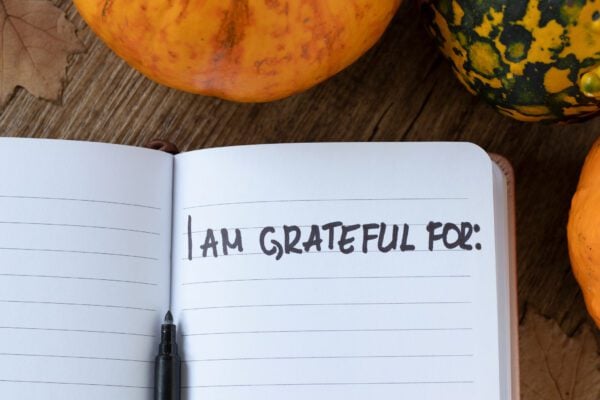Gratitude is getting a moment in the spotlight, and for good reason. Scientists say that short, regular gratitude practices can lift one’s mood, ease symptoms of anxiety and depression, and even boost overall life satisfaction.
Locals who make giving thanks a daily habit say it changes how they feel, and health systems point to gratitude as an essential part of recovery and community care.
Research finds measurable benefits.
According to The Effects of Gratitude Interventions: A Systematic Review and Meta-Analysis, published in the journal Einstein, gratitude practices were associated with greater feelings of gratitude, better mental health and fewer symptoms of anxiety and depression.
“Participants who underwent gratitude interventions had greater feelings of gratitude, greater satisfaction with life, better mental health, and fewer symptoms of anxiety and depression.”
The authors write that acts of gratitude “can be used as a therapeutic complement for treating anxiety and depression and can increase positive feelings and emotions in the general population.”
Other studies support this finding, showing that gratitude practices can increase positive mood and optimism, and in some trials, reduce anxiety and depressive symptoms. However, researchers caution that the effects are modest and that methods vary across studies.

What gratitude looks like in daily life
For many people, gratitude is a straightforward and portable concept: a nightly journal entry, a quick thank-you text, or a weekly note to someone who matters. Joel Wong, a professor of counseling psychology at Indiana University, puts it this way: “It is simply noticing and appreciating what’s good in our lives.” Wong and colleagues teach concrete steps — such as writing three things you’re grateful for each day and explaining why — as ways to make gratitude stick.
Voices from our community
Patient stories highlight how gratitude can emerge from hardship. Maurice Cain, who recovered from a stroke after treatment at IU Health White Memorial Hospital, described the care he and his family received: “They took care of me like I was family.”
Cain and his wife later returned to the hospital to thank the staff in person. For Cain, gratitude became part of recovery — he now walks four miles a day and says, “I’m doing better now than I was before the stroke.”
Health systems and gratitude
Local health organizations like the IU Health Foundation also emphasize the importance of gratitude as part of community health and philanthropy.
How to try it
- Keep a gratitude journal: write three specific things each day and why they mattered.
- Express it: send a short thank-you message or write a letter to someone who helped you.
- Small, regular doses work: studies typically show benefits from brief practices repeated over weeks rather than from one-off efforts.

What scientists say — and what they warn
Experts urge enthusiasm tempered by perspective. Gratitude practices are accessible, inexpensive, and low risk, and they can complement therapy or other treatments. But meta-analyses note variability across studies and sometimes low certainty of evidence; gratitude isn’t a substitute for clinical care when people need it.
A light, real-world payoff
The science and local stories converge on the same small but meaningful truth: making space for gratitude can alter daily experiences, strengthen social ties and nudge mental health in a positive direction. As Cain put it, gratitude can turn a scary episode into a reason to give thanks — and to give back.
This reporting is made possible by a grant from the Indianapolis African-American Quality of Life Initiative, empowering our community with essential health insights. https://iaaqli.org/
Contact Health & Environmental Reporter Hanna Rauworth at 317-762-7854 or follow her on Instagram at @hanna.rauworth.
Hanna Rauworth is the Health & Environmental Reporter for the Indianapolis Recorder Newspaper, where she covers topics at the intersection of public health, environmental issues, and community impact. With a commitment to storytelling that informs and empowers, she strives to highlight the challenges and solutions shaping the well-being of Indianapolis residents.




